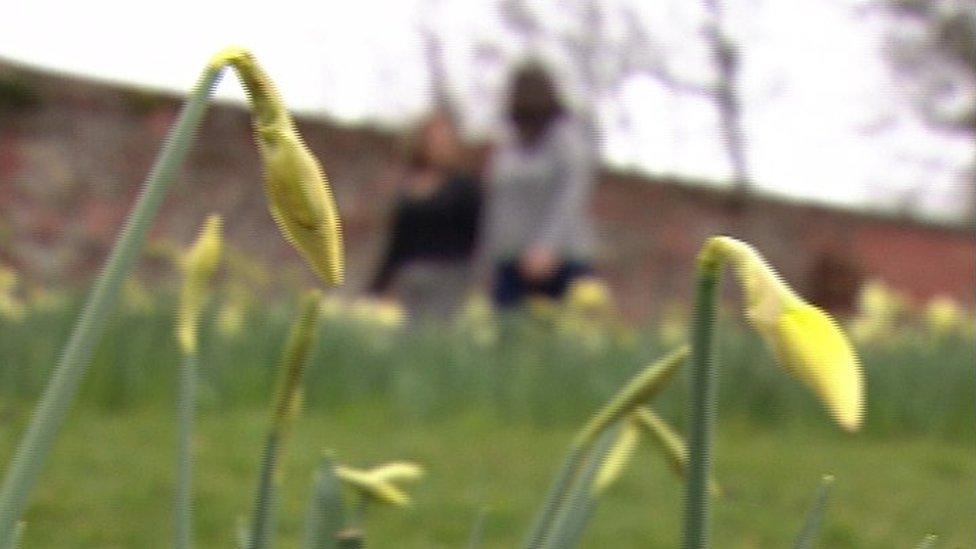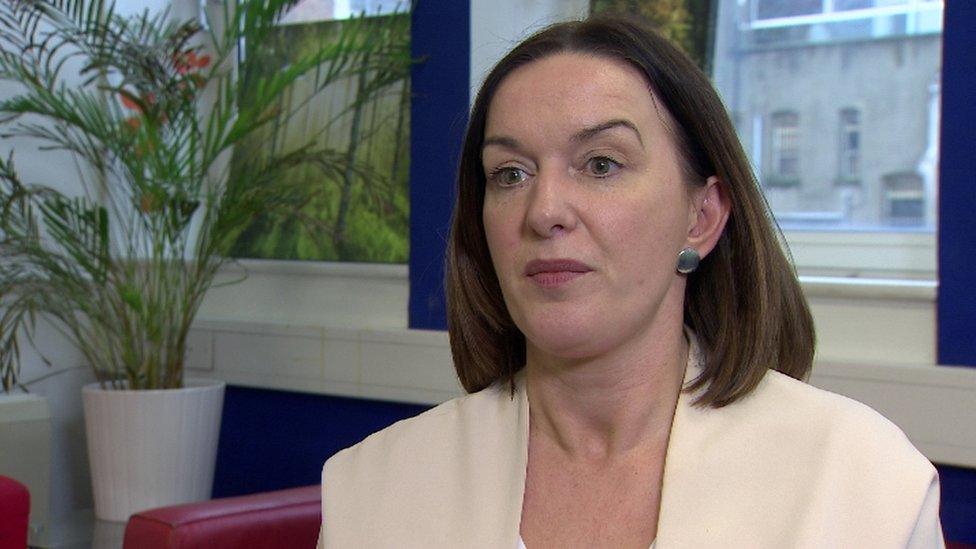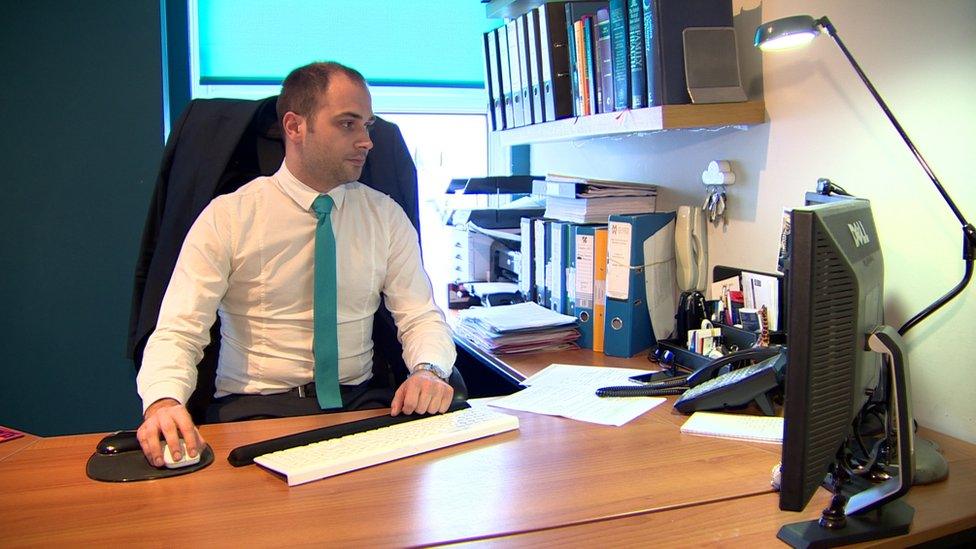Fertility treatment: Lesbian couple says criteria for free care 'impossible to meet'
- Published

The couple said they cannot afford private treatment
A lesbian couple who cannot get free fertility treatment claim they are being indirectly discriminated against because of their sexuality.
The women were initially told by health professionals they could be treated by the National Health Service (NHS).
But they were "devastated" when that changed.
The Department of Health said same-sex couples had "the same eligibility to publicly funded specialist infertility treatment as other couples".
According to criteria set out by the department, a couple has to be trying to conceive for three years unsuccessfully or have a medical condition before they are entitled to one free cycle of fertility treatment from the health service.
The same criteria applies to heterosexual couples.
But the women argue that it is impossible for them to meet the criteria used by the regional fertility centre in Northern Ireland.
They said the criteria were drawn up with only a man and woman in mind.
The rules need to change as has happened in Scotland, the women said, to accommodate same-sex couples.

Tracy McDowell from Here NI, an independent support group for gay and bisexual women, said fertility rights were "another barrier" for same-sex couples to overcome
The couple told the BBC that they cannot afford private treatment. They had approached their GPs and Belfast's regional fertility clinic.
"Initially we were jumping around the room, we were so excited that we were going to be put on the waiting list," one of the women, who did not want to be named, said.
Conflicting
"When we did go to the hospital [we were] told it was only available for heterosexuals and they couldn't fund us.
"We felt they were saying: 'No, you are lesbians, there was no equality, we won't help you.'"
The women said they approached the BBC because of the conflicting information they received from GPs and other health professionals.
They are also accusing the Department of Health of indirect discrimination.
'Committed'
"We shouldn't be treated any differently," one of the women said.
"It is offered on the NHS to people who are infertile - in a way, we are infertile as we can't have a baby in the way nature intended.
"That is through no fault of our own."
The woman's partner said they are committed to each other and are in a stable relationship.
"We love each other, we want to build a life together and should not be discriminated against," she said.
Changing
The number of same-sex couples attempting to get pregnant in Northern Ireland is growing.
In 2013, about 60 couples sought fertility treatment privately.
In the past 18 months that figure has jumped to more than 200.
Agenda
Tracey McDowell of Here NI, an independent support group for gay and bisexual women, said achieving reproductive rights for same-sex couples is the next stage in their fight for equality.
"It is yet another barrier that we have to face and try and overcome," Ms McDowell said.

Ciaran Moynagh said the health trust "has to update their stance" on the issue
"It is absolutely on our agenda."
Ciaran Moynagh, a lawyer specialising in family and equality law and an LGBT campaigner, said the couple could have a case.
"I certainly think there is a case to answer if the [health and social care] trust are applying a blanket policy that doesn't accommodate same-sex couples," he said.
"The trust has to update their stance and perhaps come up with their own guidelines.
"If they don't do that, maybe a case could proceed."
Determined
In a statement, the Department of Health said "same-sex couples have the same eligibility to publicly funded specialist infertility treatment as other couples".
"In February 2013, the National Institute for Health and Care Excellence (NICE) published an updated clinical guideline entitled Fertility problems: Assessment and treatment.
"This does not update access criteria, which are determined locally, but offers best practice advice.
"The department endorsed the NICE guidelines in November 2013, and it is currently with the Health and Social Care Board to consider how best it can be implemented in light of ongoing budget pressures."

Analysis: BBC News NI health correspondent Marie-Louise Connolly
According to Fertility Fairness, an umbrella group with representatives from national patient groups and professional bodies, in vitro fertilisation (IVF) provision in Northern Ireland in general is "far below that of the rest of the UK".
All couples, heterosexual and same-sex, are able to get one cycle of publicly-funded treatment.
That goes against the guidance issued by NICE in 2013.
It recommends those eligible are offered three full cycles of IVF.
Wales has generally adopted guidelines, with all women being offered two cycles of IVF.
In England, the situation is more fragmented. Some areas offer three cycles, others offer two.
While some areas do fund artificial insemination or donor insemination, a majority do not.
Scotland differs again. It does not adopt the NICE guidelines, but under a different advisory body same-sex couples receive the same IVF treatment as heterosexual couples.
Another difference is that, as opposed to medically-defined infertility, which is often difficult to prove, treatment is offered for unexplained infertility after an attempted six to eight cycles of donor insemination.

Meanwhile, the charity, Infertility Network UK, said it feels that progress in Northern Ireland to improve NHS fertility treatments for all couples has been very slow, especially when compared to other parts of the UK.
"We would urge the Health and Social Care Board to seriously consider implementing the NICE Guidance since it is now three years since it was published and many couples are suffering as a result of their lack of progress," the charity said in a statement.
The group acknowledged that, because of financial constraints, a move towards offering three IVF treatment cycles might have to be phased in, but it said other recommendations should be progressed without delay.